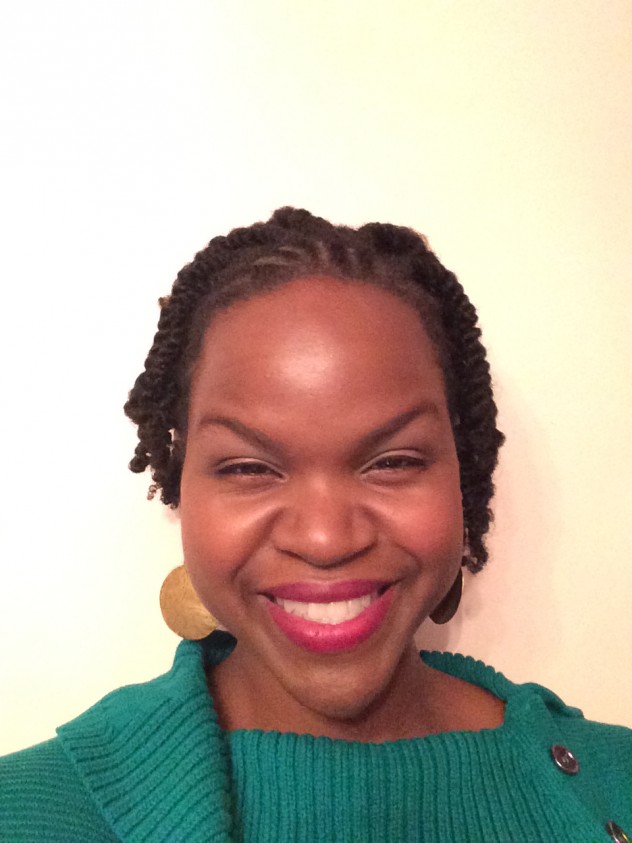Natalie Gill, Senior Manager at Clinton Health Access Initiative, Inc.

Please give a brief background on yourself and your career.
I am currently the Senior Manager for Tuberculosis (TB) Access at Clinton Health Access Initiative (CHAI). In this role I work to ensure that the people most in need of TB treatment can access the best tools and medicines at affordable and sustainable prices as rapidly as possible. I work with a team in supporting ministries of health in Sub-Saharan Africa and Southeast Asia according to their priorities to strengthen their TB response.
Prior to joining CHAI, I worked as a management consultant in the health industries practice at PwC with industry and functional experiences including global strategic marketing with a specialization in emerging markets, medical devices, project management, payer operational strategy, and digital health strategy. I also have experience in global public health and international development, after spending 3.5 years in Zambia working closely with their Ministry of Health to implement PEPFAR programs on rural, district and national levels. As an HIV counseling and testing technical advisor of a 6 NGO consortium led by World Vision, I led a team of program officers to train close to 500 counselors and test over 10,000 people across Zambia for HIV over the course of one year, providing them with access to health services.
How has your career changed since you originally envisioned it at Wellesley? What other careers did you consider as a student?
When I was at Wellesley, I knew I didn’t want to be a doctor, so I settled on becoming a lawyer. However, after taking the LSAT I changed my mind. Wellesley contributed to my career by exposing me to all the world had to offer and affording me opportunities to explore it on my terms. I caught a travel bug when I discovered that Wellesley provided travel grants for individual research projects I could create on my own. I utilized all the resources at my disposal at Wellesley and managed to study abroad in Ghana, conduct research in Cuba and Barbados, and present my research in Jamaica. In the midst of all of that global exposure, I decided I wanted a career in international development.
My career path has followed the path of a boomerang: I started with one idea of what I wanted to do, went on to do something completely different, and then returned almost to where I started. Upon graduating from Wellesley, I applied to several NGOs and international organizations only to be told that I needed 3-5 years of international experience to be considered for a position. I asked myself, “Where are you going to find 3 years of experience abroad if these organizations won’t give you a chance?” Cut and transition to the Peace Corps, where I attained 3+ years of international experience and so much more.
Eventually, I decided to go back to grad school and get some hardcore functional skills in management, finance, operations, and strategy, which also happen to be the majority of core courses in an MBA. I wanted to get business skills that I felt the development community desperately needed. It was always my plan to get an MPH, as everyone in international development, or at least in the global health arena, seemed to have one. So, as any Wellesley woman would do, I signed up for both and graduated with a dual Masters degree MSPH and MBA from UNC Chapel Hill.
What is a typical work day or work week like for you?
There is no typical work day or work week in my current role–it depends on where I am in the world. If I am in my home state, I am often working from my home office, on conference calls as early as 6:30 AM or 7 to catch folks in India or South Africa to plan how to work with governments to accurately forecast their needs for treatment or provide diagnostics in the areas with the highest tuberculosis prevalence. If I am out of the country, I might be in a meeting with the WHO in Geneva or supporting a coun try team in Kenya on stakeholder interviews and training. At the end of the day, it is about doing whatever I can to contribute to the mission of saving lives, reducing the disease burden and strengthening health systems.
What piece of advice would you offer students looking to get into your area of interest and expertise?
CHAI is unique in that it focuses on the business and operational side of global health. One way to be successful in an organization like CHAI is to strengthen your analytical skills and develop a specialty or core strength in quantitative analytics, statistical modeling, or operational modeling techniques. At the undergraduate level, you can get that by taking advanced classes in mathematics, economics and biosciences, and working with professors to understand the basics of quantitative research methods when you write your research papers. It will also help prepare you for graduate school. If I could have changed anything about my Wellesley experience, I would have taken more time to build my quantitative skills so that I didn’t face such a large learning curve in graduate school.
What do you wish you had known as a student?
I wish I had known that I didn’t have to choose in college what I would do for the rest of my life. I only had to choose what I would do next. Your career is based on what you are exposed to in your life, the people you meet and the opportunities you have. Therefore, the most important thing is to be present in the moment and learn from the opportunities you have each day–things will happen the way they’re supposed to.
If you could come back and take one class at Wellesley what would it be?
Something quantitative. I’m not sure if Wellesley teaches econometrics but I could use a review in that arena.